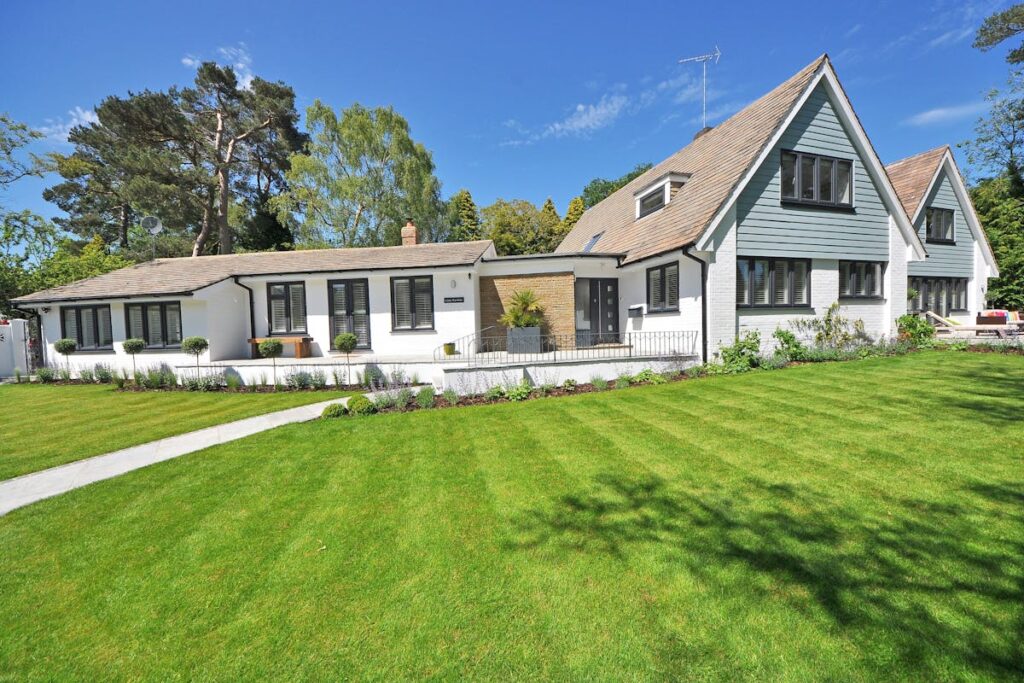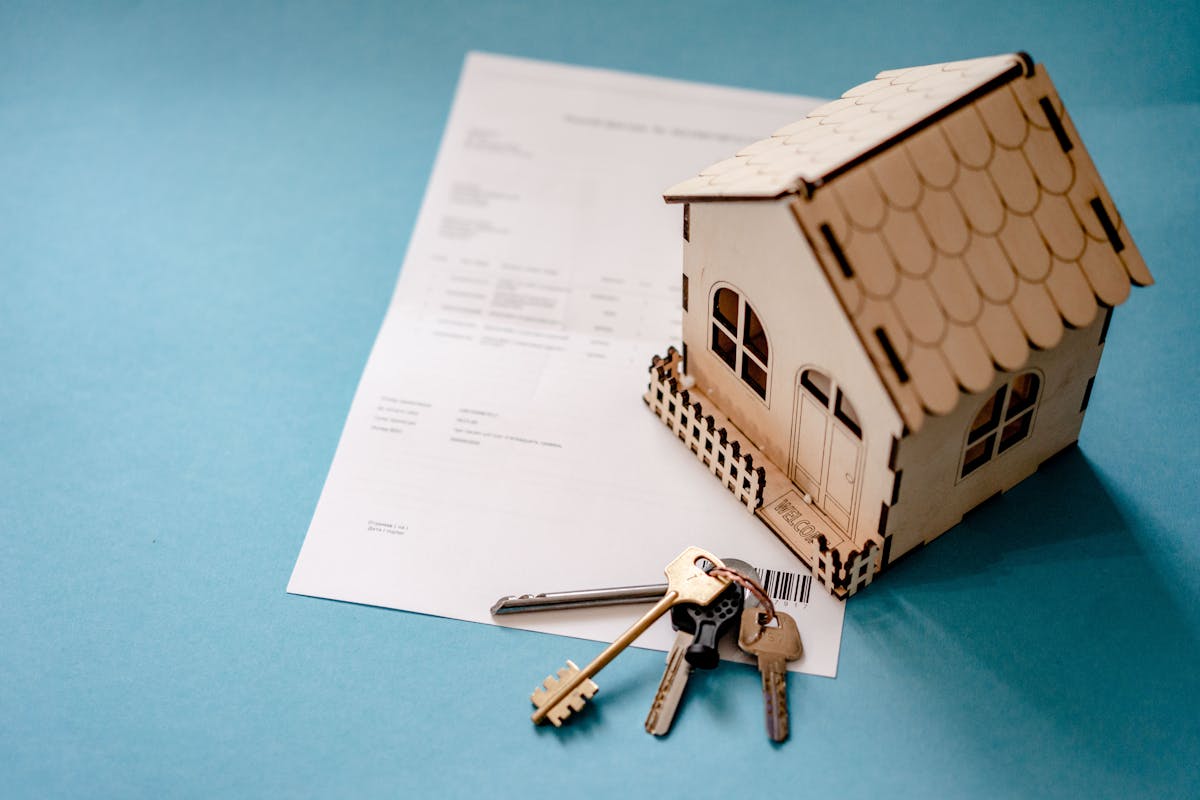Picture Supply: https://www.pexels.com/photo/wooden-house-moder-keys-and-contract-on-table-12955837/
When it comes to protecting your most valuable asset—your home—having insurance may seem like an optional expense. However, overlooking home insurance can have devastating financial consequences in the event of a disaster. While it may seem like an unnecessary expense, the true cost of not having home insurance can be far greater than the premium you would pay for coverage.
Here, we’ll explore the risks and expenses associated with not having home insurance, shedding light on why this coverage is crucial for homeowners.
1. Financial Burden in Case of a Natural Disaster
The cost of replacing or restoring your house after a natural disaster, like an earthquake, flood, or fire, is one of the biggest hazards of not having home insurance. Repairs after a disaster can easily cost tens of thousands of dollars, and if you don’t have insurance, you’ll have to pay for them out of pocket.
Consider the aftermath of a fire. The destruction of your home, furniture, and personal belongings can quickly add up. Even a minor fire can cause extensive damage to the structure of the house and render it uninhabitable. In such a scenario, home insurance would cover both repair costs and any necessary living expenses during the rebuilding process. Without it, you would face the daunting task of financing everything yourself, potentially leading to severe financial hardship.
2. Liability Risks and Lawsuits
Homeowners are responsible for the safety and well-being of visitors to their property. If someone is injured on your property—whether it’s a guest who slips on your icy driveway or a contractor who sustains an injury while working—there is a risk of a lawsuit. You might be responsible for paying for any damages awarded in a lawsuit, legal fees, and medical costs if your house insurance does not provide liability coverage.

In the United States, lawsuits for accidents on private property can be costly. Medical expenses for injuries, especially serious ones, can reach hundreds of thousands of dollars. Add to that the potential for ongoing legal fees, and you could find yourself facing financial ruin. Home insurance typically includes liability coverage, which shields you from these types of legal and financial obligations, but without it, you would be personally responsible.
3. Loss of Personal Property
Homeowners run the danger of losing personal belongings to theft, fire, or other natural disasters in addition to harm to the actual structure of their house. Items such as electronics, jewelry, clothing, and furniture can be expensive to replace. Without insurance, the loss of these items could leave you with a financial burden that’s difficult to recover from.
Home insurance policies typically cover personal property loss caused by fire, theft, vandalism, and more. For those who have valuable items like artwork, electronics, or heirlooms, additional coverage can be added to ensure they’re fully protected. Without this protection, replacing these items out of pocket could lead to a significant financial setback.
4. Additional Living Expenses in Case of Displacement
If your home is damaged to the point where it’s uninhabitable, you’ll need to find somewhere else to stay while repairs are made. Hotel bills, rental homes, and other living expenses can quickly add up. Home insurance policies typically include a provision for additional living expenses, covering the cost of temporary housing, meals, and other essentials while your home is being repaired.

Without insurance, however, you would have to cover these costs on your own. In addition to paying for home repairs, you’ll be forced to pay for your lodging as well, which can be extremely costly. In a worst-case scenario, homeowners who lack insurance may even end up losing their home due to their inability to recover from such high costs.
5. Mortgage Lender Requirements
If you have a mortgage, your lender will almost certainly require you to maintain home insurance. This protects their investment in your property in case something happens to it. Without insurance, you risk breaching the terms of your mortgage agreement, which could result in penalties, foreclosure, or even the lender purchasing insurance on your behalf, often at a much higher cost than a standard homeowner policy.
Even if you own your home outright, the absence of insurance can complicate the process of selling or refinancing. Potential buyers or lenders may be wary of a home that lacks coverage, and it may limit your options down the line.
6. Peace of Mind and Emotional Toll
Beyond the financial and legal implications, not having home insurance can take a significant emotional toll. The fear of facing a disaster without protection can cause stress and anxiety, knowing that the financial cost could be overwhelming. Having homeowner’s insurance gives you comfort in knowing that you have a safety net in case something goes wrong. This reassurance allows you to focus on enjoying your home and your life without constantly worrying about the “what ifs.”
Without this sense of security, any event that damages or threatens your home can feel even more devastating. The emotional and psychological burden of a catastrophic event can be hard to measure, but it certainly compounds the financial costs.
7. The Cost of Insurance vs. The Cost of Going Without It
While paying for home insurance may seem like a hefty expense, it’s important to consider the cost relative to the protection it offers. The average home insurance policy typically costs a few hundred dollars per year, which is a small fraction of the potential costs that could arise from damage, liability issues, or theft. Insurance is an investment in your home’s future, one that safeguards your property, assets, and peace of mind. When you weigh the cost of insurance against the potential financial devastation of not having it, the decision to skip coverage becomes much riskier.
The true cost of not having home insurance is far more than just the immediate out-of-pocket expenses. It encompasses potential lawsuits, the loss of property, expensive repairs, and the emotional toll of living with uncertainty. Homeowners insurance isn’t just an extra expense—it’s a crucial safeguard that protects your home and finances from unexpected disaster. By choosing to invest in insurance coverage, you’re ensuring that you and your family are prepared for the worst while minimizing the financial impact of life’s unpredictable events.

Leave a Reply